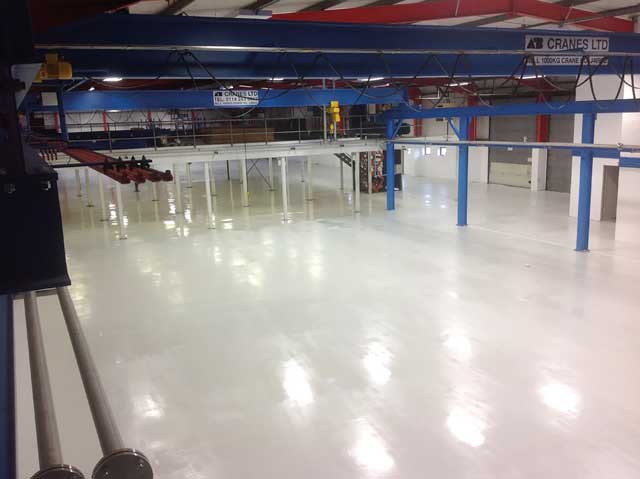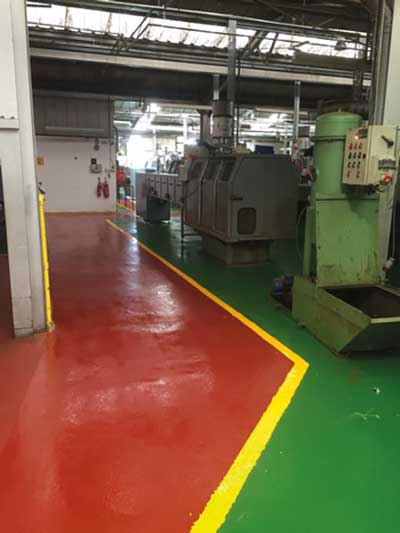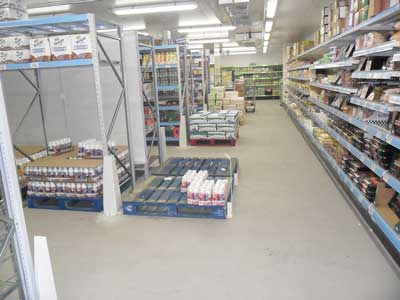
CG Flooring Systems director Alan Yuill offers a guide to the strengths of different types of industrial resin floor system
The use of synthetic resin floor systems in industrial environments is widespread, with options available to suit most budgets. There are different types of resin floor systems available on the market with the most common generally made from epoxy, polyurethane or acrylic (MMA) resins. Each has their own personality, and though there is no reason to doubt the performance of any of them, some perform better in particular environments than others. We would like to give you an insight into how we at the CoGri Group approach resin flooring, which will hopefully help you to choose the right resin floor for your needs.


For the purpose of this article we are referring to standard epoxy and polyurethane (PU) systems for concrete industrial floors and their general differences.
There are a number of factors to be considered when you are looking to have a resin floor installed, such as the service conditions the resin will be under, chemical and slip resistance, condition and design of the concrete floor slab, contamination, surface regularity (levels), appearance, future maintenance and, of course, budget.
The resins themselves have differences, with epoxy being more rigid compared with the more elastic PU floors. They also respond differently when exposed to certain chemicals.
For example, polyurethanes stand up very well to lactic acids used in the food processing industry, whereas epoxies can experience corrosion and premature wear in these environments. However, where the floor may come into contact with sulphuric acid, such as in a forklift battery charging area, epoxies are more resistant and effective than polyurethanes, making them a better choice for heavy industry and warehouse operations.
Critical to the success of any resin floor system is the quality of the surface preparation carried out. At the CoGri Group the concrete substrate is treated to full and detailed mechanical cleaning prior to the application of any resin system. This helps to promote adhesion to the substrate, which in turn will help improve the long-term performance of the resin floor.
Further information: 01484 60085
www.cg-flooring.com

